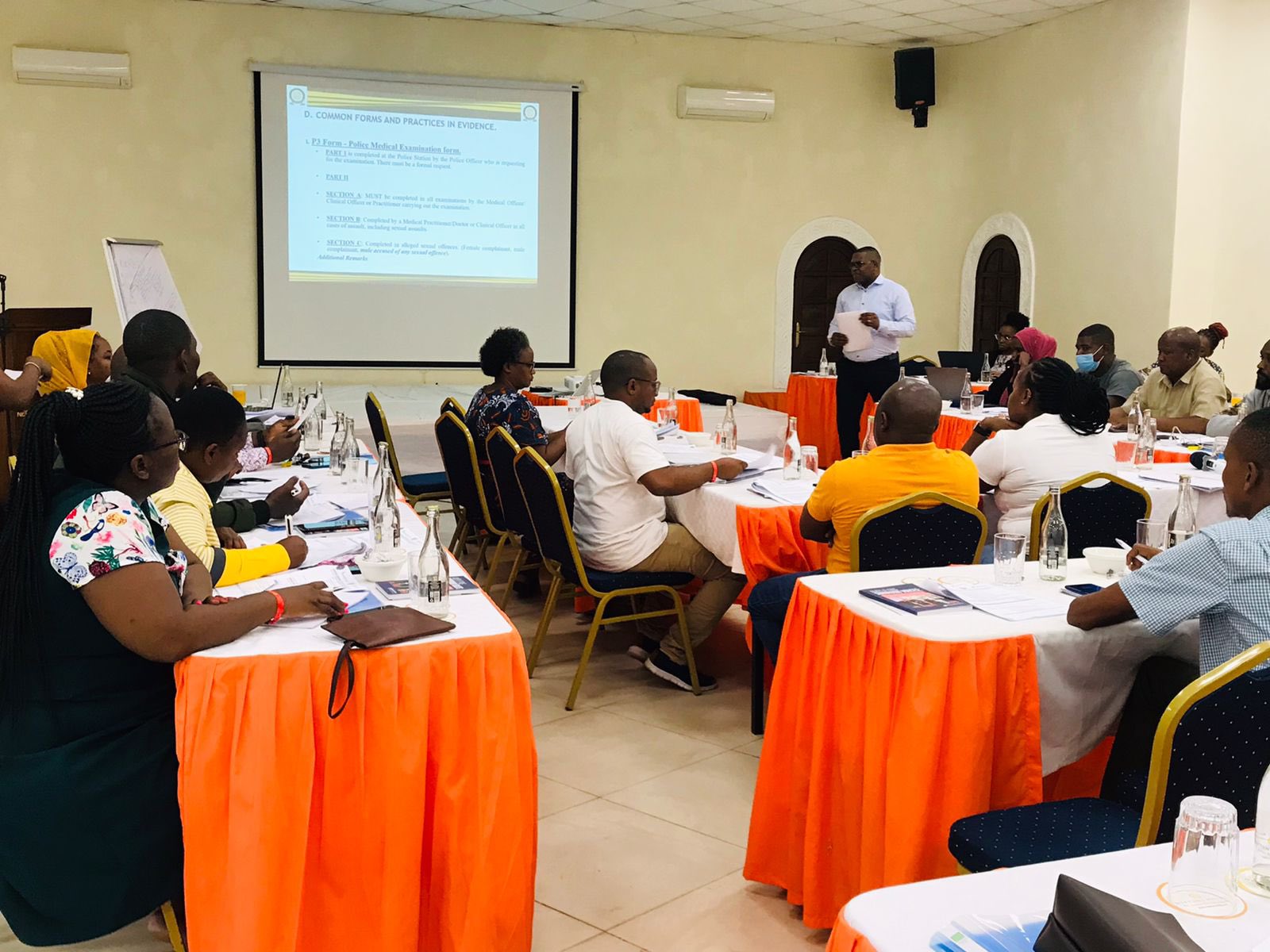By Maurice Goga

Clinicians, police, Office of the Director of Public Prosecutions and judiciary representatives held consultations on collecting and handling SGBV-related evidence to ensure justice for survivors.
Speaking at the meeting, Msambweni Law Courts Senior Resident Magistrate, Hon. Sandra Ogot stated that the chain of conviction starts with the police who compile evidence before handing them over to the Office of the Director of Public Prosecutions (ODPP) which then presents the evidence before the court.
“The police are the first point where survivors of SGBV run to before they proceed to the hospital for examination by clinicians. Once the evidence is lost at this point, the case is lost because the evidence determines whether the case will end up in conviction or acquittal,” Hon. Ogot said.
The Senior Resident Magistrate called on the police not to accept any form of bribery to interfere with evidence saying interfering with evidence will delay or deny justice to the survivors.
Mr. Mulama Allen, Prosecutor from the ODPP stated that most medical practitioners and the police usually have a challenge when filling the P3 and PRC forms as the prosecution teams often have challenges in interpreting the filled forms which have led to many acquittals.
On her part, Fatuma Hadi Ali, a Senior Superintendent from the Directorate of Criminal Investigations said that Kwale County has seen a reduction in the number of unreported SGBV cases which she attributed to the establishment of police gender desk and policare at various police stations across the country. She urged the police officers to ensure that they go through the evidence and exhibits with the plaintiff before the case proceeds to court for a hearing.
The participants said that through community policing they have been able to respond to SGBV cases which has led to a decline in the cases of SGBV in Kwale County. However, some of the cases go unreported due to preference by community for community informal resolution mechanisms.
CCGD continues to strengthen support and services to SGBV survivors by offering institutional support to the Msambweni Referral Hospitals; Gender-Based Violence Recovery Centre (GBVRC).
The GBVRCs offer clinical and psycho-social support to survivors as well as referrals to law and justice institutions support services including medical attention, psychosocial support and linkages to referral pathways whenever they report their cases.


